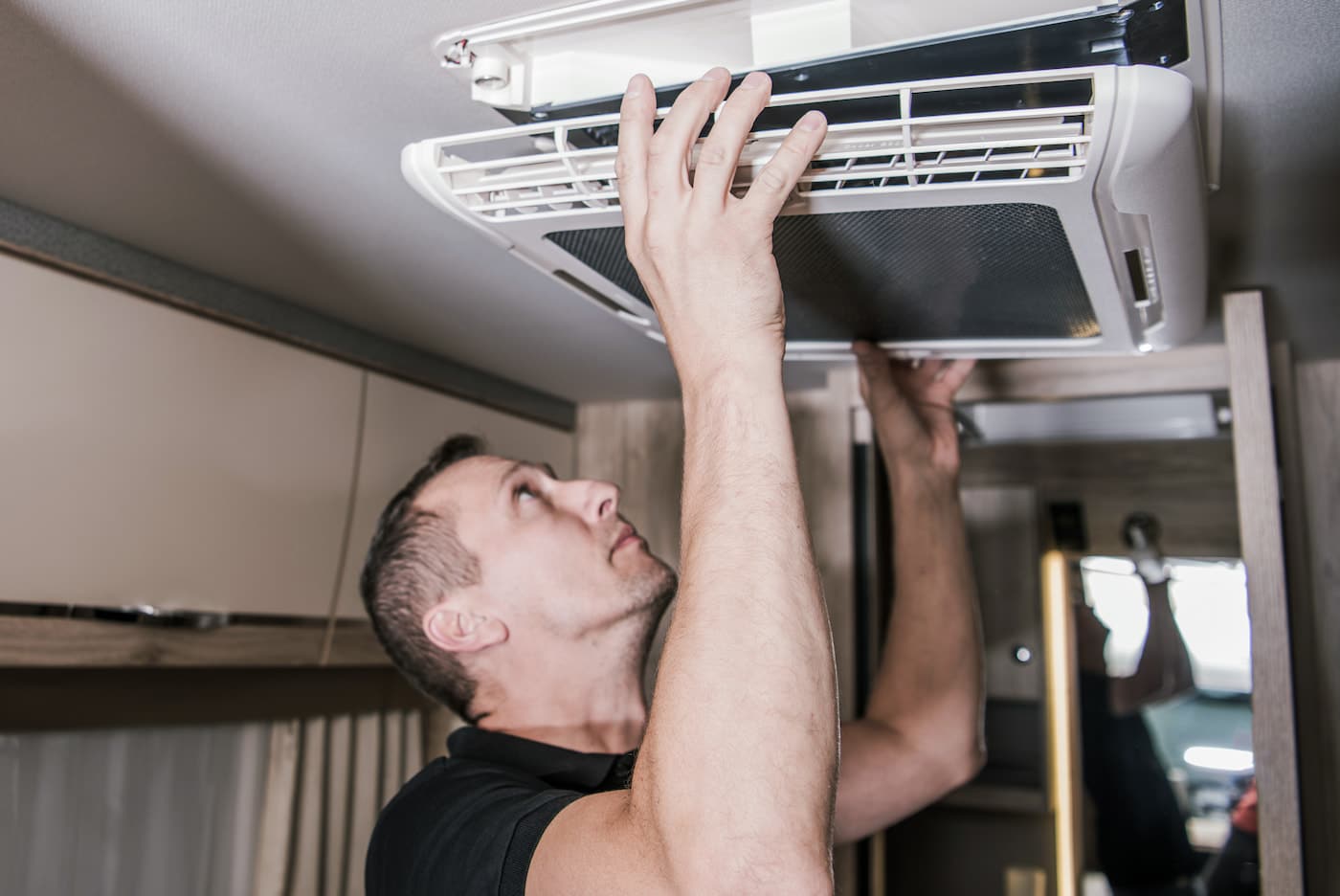With a brick-and-mortar home, you always have maintenance to take care of. An RV is no different. Many basic maintenance jobs are fairly simple and with regular care, you can prevent repairs before they get expensive. Keep in mind that RVs are designed for weight considerations and may have a faster rate of failure thanks to exposure to the elements.
You can reduce repair problems with some routine vigilance and your own two hands. You will learn more about your RV in the process. You also save time waiting for a professional mechanic as service facilities often have long wait lists and labor rates that typically start at $150 an hour.
How different are RVs?
First of all, RVs are not manufactured the same way as cars and certainly not built like a house. They are in a category of their own. RVs are not necessarily intended for 24/7 living and are designed to be lightweight, portable and maneuverable.
Assembly is not done by machine like for cars, but by people using hand tools. This adds an element of variation, however slight. RV models change from year to year, including their appliances, and even vary within make and model. Regular and consistent maintenance is key to reducing repair expense and frequency.
Repair considerations
Maintenance and repair jobs go together; when you learn one, the other is easier! We are listing typical repairs that many RVers take care of themselves. And, for the record, this isn’t an exhaustive list. Your comfort level and experience will determine the repairs you want to take on.
Secondly, we are not going to give instructions about how to do repairs. The Internet is chock full of instructions and videos to help out. Your fellow RVers are also an important resource.
Additional Resources
Advice from a Professional RV Mechanic
Thirdly, living full time in your RV versus taking it out a few times a year has a direct affect on repair frequency. Where you spend the most time will directly affect the kinds of maintenance and repairs.
Lots of sun will mean you need to pay attention to the roof as well as seals and caulking, and perhaps, shade the window glass with heat and UV protection. Air conditioning pulls a lot of power. Winter sports weather will create different issues. No one wants a frozen water (or black tank!) line and heating can be with electricity or propane.
Types of DIY Repairs
With the basic set of tools that every RVer should carry and a bit of know-how, these are the most common do-it-yourself repairs.
- Plumbing (hoses, connectors, tanks)
- Seals and filters
- Propane system (especially the regulator)
- Tires – wheels
- Electrical (keep records of fuse types and numbers)
- Roof
Plumbing can include not only the usual leaky faucets or hot water heater issues, but also the entire water system, and sewer system, with associated connectors and tanks. Seals and filters include window seals, all caulking, vents, water and air filters.
Appliances may also require the occasional repair. Our suggestion is that you keep detailed records of all repairs and upgrades, with dates and model numbers, regardless who does the job.
For any kind of repair that makes you nervous, for whatever reason, mobile mechanics are available everywhere and are on call to come to you. Even better is an RV park that provides repair services or detailing. If nothing else, some parks can provide mechanic referrals.
Hang on to the manuals and warranties that come with your RV and appliances. Many manuals may be online, so it might be worth it to download any PDF versions for future reference.
Now, at Riverbound Custom Storage and RV Park provides basic repairs in addition to detailing, a list of reputable mechanics if needed, and even a concierge service. Get the most out of your RV and your budget with your own two hands and a little help from Riverbound.


